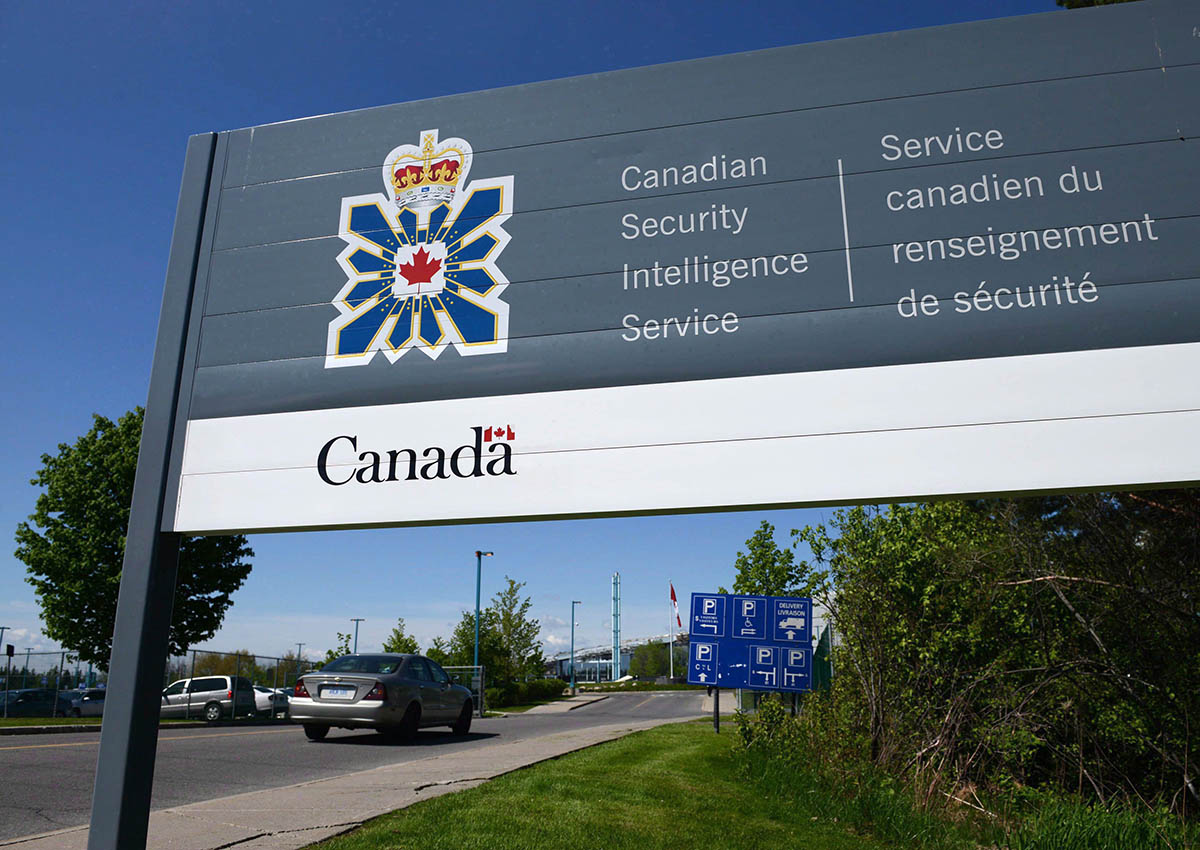The COVID-19 pandemic has hit Canada’s intelligence service, including director David Vigneault, who has contracted the virus, the agency confirmed on Wednesday.

In a statement to Global News, the Canadian Security Intelligence Service said Vigneault “recently contracted COVID-19 and as a result … has been working from home.”
CSIS is also dealing with “limited and contained” outbreaks of COVID-19 at some of its offices, spokesperson John Townsend said. He did not specify the locations.
Because of its national security role, CSIS has kept its national headquarters in Ottawa, as well as its regional offices across Canada and foreign stations, operational during the pandemic.
“CSIS’s mission remains the protection of Canada’s national security interests and the safety of Canadians. It is essential that we continue to carry out that critical mission,” Townsend said.
He added those who tested positive for COVID-19 were “directed to recover at home, close contacts are required to isolate and be tested, and affected work areas are thoroughly cleaned.”
But he said national security investigations were continuing and “Canadians should and can expect that nothing will stop CSIS from delivering on its critical mandate.”
- Posters promoting ‘Steal From Loblaws Day’ are circulating. How did we get here?
- Video shows Ontario police sharing Trudeau’s location with protester, investigation launched
- Canadian food banks are on the brink: ‘This is not a sustainable situation’
- Solar eclipse eye damage: More than 160 cases reported in Ontario, Quebec
A fractious debate has been taking place within CSIS over workplace safety amid the coronavirus pandemic, sources have told Global News.
A significant number of CSIS employees have complained to managers that while other federal agencies have let staff work from home, intelligence staff have been forced to keep working at headquarters.
Sources said that has fueled concerns and complaints about the safety of CSIS employees in Ottawa, and fears that the insistence on working at the physical site puts staff at risk.
Almost 200 CSIS employees signed a mass grievance over the issue in February, two sources said.
Those who spoke to Global News described a lack of physical distancing at headquarters, as well as a lack of strict policies regarding wearing masks in the workplace.
The sources, who include current and former CSIS employees, were not authorized to speak publicly about internal workplace concerns.
The employees are also not unionized and expressed fears of career repercussions for speaking publicly about their concerns. Global News has agreed to protect their identities.
Sources also confirmed that some headquarters employees have contracted COVID-19, but noted it’s not clear whether they got sick from transmission of the virus inside the CSIS building or contracted the virus outside of work.
According to sources with knowledge of the workplace safety debate, part of the problem is an argument made by some CSIS staff that employees there need to accept a higher level of personal risk than some other federal employees due to the nature of their national security work.
But that appears to be at odds with the pandemic safety and work-from-home accommodations being offered by CSIS’s sister agency, the Communications Security Establishment, as well as the RCMP.

Global News contacted all three security agencies to ask for specific details about how they are accommodating employees at headquarter locations — as opposed to field offices — and the orders in place across the province to work from home whenever possible.
The questions asked five key things to each of the three agencies:
- how has the coronavirus pandemic impacted their work,
- have they implemented work-from-home policies for any percentage of their workforce,
- are they implementing flexible work options for employees with children,
- are their employees required to wear masks while at work, and
- have they received formal complaints from staff about workplace safety and the risk of contracting COVID-19.
CSIS said it was “guided by two principles: the protection of our employees, and ensuring that we can continue to deliver on our critical mandate for Canadians. In support of these objectives, we are continuously updating measures to reflect the most recent guidance provided by public health officials,” Townsend said.
He said the director had not recently travelled prior to contracting COVID-19, and his case was not related to a workplace outbreak.
“While we do not normally comment on specific details related to our operational posture or activities, what I can say is that, much like other essential services including schools and grocery stores, CSIS has experienced COVID-19 cases including those linked to community transmission as well as limited and contained outbreaks,” he said.
In contrast, the CSE provided a detailed breakdown of the measures in place for employees, while the RCMP said it had a “high percentage” of employees working from home.
A spokesperson for the RCMP said all core policing operations, including national security investigations, have been maintained by front-line police officers and investigators.
“In order to minimize exposure and protect the health of front-line officers and critical support staff, RCMP administrative offices and non-critical facilities were closed to employees who were not critical or who could work remotely,” said Cpl. Caroline Duval, spokesperson for the force’s headquarters.
“A high percentage of employees continued to work from home to ensure that services were maintained to support front-line operations. As a result of the precautions taken, the RCMP has been able to continue to operate with little or no impact on public safety and law enforcement activities.”
Evan Koronewski, spokesperson for the CSE, Canada’s signals intelligence agency, provided the most detailed response of the agencies.
He said while the agency continues to operate at all hours, it has put in place many measures including the option for flexible work arrangements and work-from-home via secure electronics.
“CSE has been able to adapt to the realities of the pandemic,” he said.
“Some of our employees began working from home, equipped with CSE-provided electronic devices that connect securely to our IT infrastructure, allowing them to be productive during these unprecedented times. We use collaboration tools to ensure employees are engaged and informed, whether they work in one of our buildings, or at home.”
He said the agency is working with employees who need arrangements such as staggered or flexible hours to help them manage the demands at home and at work during the pandemic.
Koronewski noted that while some of the agency’s work requires employees to be on-site in classified facilities, there are safety measures in place.
“For example, we have staggered and reconfigured workstations to ensure two metres of physical distancing. We have significantly increased cleaning and sanitization of our facilities, focusing on high-touch surfaces. There are hand sanitization stations throughout our facilities,” he said.
“We have closed or reconfigured many of our common areas. Masks are mandatory any time employees are not seated at a safely distanced desk. All of these measures are reinforced with daily communications to all staff.”
He added there is “clear signage throughout the workspace highlighting health protocols and expected behaviours.”
The government’s coronavirus workplace safety guidelines state that employees “at all work sites are asked to work remotely whenever and wherever possible.”
“Managers are expected to identify an approach that is flexible while ensuring continued critical government operations and services to Canadians,” the guidance notes, adding that managers are only supposed to consider on-site work if the work is a critical service or working remotely is not feasible.






Comments